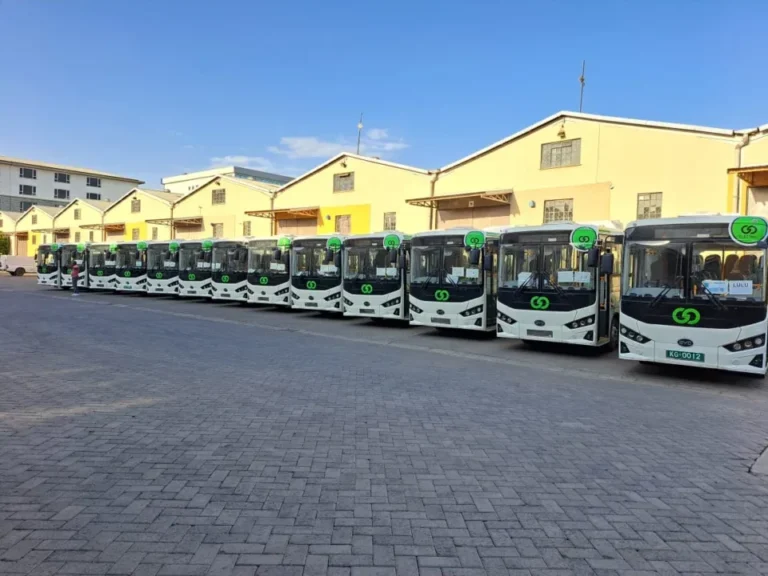Kenya has managed to secure a Ksh. 50 Billion investment from a consortium of European agencies to build a dedicated electric bus lane in Nairobi in a bid to deal with the congestion headache in the capital.
The deal was signed in Brussels following President William Ruto’s visit will see the EU provide €45 million (Sh6.47 billion) in grants, while the European Investment Bank (EIB) and French Development Agency (AFD) will jointly support the projects with €236.3 million (Sh33.9 billion) in funding. The Kenya government will provide €66.3 million (Sh9.5 billion), taking the figure to €347.6 million (Sh50 billion).
The declaration of intention to finance the electric bus line was signed by EU Commissioner Jutta Urpilainen and Kenya’s Transport Cabinet Secretary Kipchumba Murkomen.
The project will start from Kenyatta National Hospital and progress to Haile Selassie Avenue into the Central Business District, continue on Race Course Road to Ring Road Ngara to Juja Road and end in Dandora. It will comprise 10 main components including bus running ways, bus stations, bus depot, station access supporting infrastructure including pedestrian bridges, fare collection and validation systems. Other components are a bus fleet (110-articulated buses), interchange stations for feeder bus services, park-and-ride facilities, a BRT control room, and a real-time passenger information system.
The innovative BRT line 3 project is a key deliverable of the Mombasa-Kisangani strategic corridors, which is a priority in the Global Gateway Africa-Europe Investment Package. This line will be the first dedicated electric bus rapid lane in East Africa and is part of a system of five rapid bus lines to be developed in the Kenyan capital. The Bus Rapid Transit Line is fully designed by European expertise and funded by a consortium of Team Europe partners and has a strong focus on the highest social and environmental standards. The BRT Line 3 is expected to be operational in 2030. The electric BRT line 3 will transport up to 300 000 daily commuters through the most congested areas of Nairobi in an efficient and safe manner. There will be a bus every 3 minutes during peak hours.
Vice-President of the European Investment Bank, Thomas Östros, “The European Investment Bank welcomes today’s milestone agreement with President Ruto and looks forward to finalizing €201 million support for the visionary Nairobi BRT scheme through EIB Global. This will represent the EIB’s largest ever support for sustainable urban transport in East Africa and will enable millions of people living in Kenya’s capital to access safe and green transport for years to come.”

